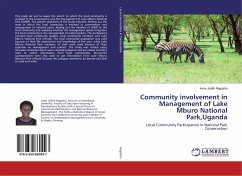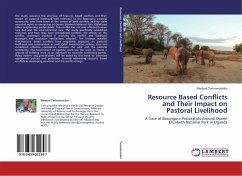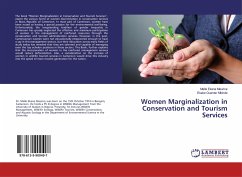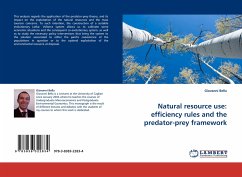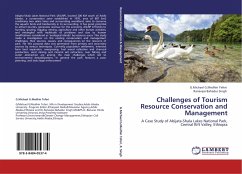
Challenges of Tourism Resource Conservation and Management
A Case Study of Abijata-Shala Lakes National Park, Central Rift Valley, Ethiopia
Versandkostenfrei!
Versandfertig in 6-10 Tagen
39,99 €
inkl. MwSt.

PAYBACK Punkte
20 °P sammeln!
Abijata-Shala Lakes National Park (ASLNP), located 200 KM south of Addis Ababa, a conservation zone established in 1970, area of 887 km2 combining two saline lakes and surrounding woodland, aims to conserve the aquatic birds and biodiversity in its surrounding. It has great potential to attract tourists, generates revenue for the economy. ASLNP off-limits to hunting, grazing, logging, mining, agriculture and other human activities; and entangled with multitude of problems and due to human modifications considered as ecological islands by resource users. This study made a investigation on the e...
Abijata-Shala Lakes National Park (ASLNP), located 200 KM south of Addis Ababa, a conservation zone established in 1970, area of 887 km2 combining two saline lakes and surrounding woodland, aims to conserve the aquatic birds and biodiversity in its surrounding. It has great potential to attract tourists, generates revenue for the economy. ASLNP off-limits to hunting, grazing, logging, mining, agriculture and other human activities; and entangled with multitude of problems and due to human modifications considered as ecological islands by resource users. This study made a investigation on the existing conservation and management challenges, their sources, causes, and consequences on the resource of park. For this purpose data was generated from primary and secondary sources by various techniques. Currently population settlement, intensive farm land expansion, overgrazing, fuel wood collection and charcoal production, sand mining and mineral salt extraction, over fishing and water abstraction are among the main challenges which led to environmental destabilizations. In general the park features a poor planning, and lacks legal enforcement





